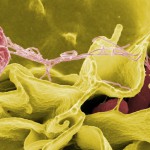A clinical study conducted at Stanford School of Medicine demonstrated astounding recovery in chronic stroke patients after being treated with modified human stem cells. Several patients demonstrated seemingly miraculous regeneration in muscle movement and coordination literally overnight.
Eighteen disabled patients were enrolled in the two-year clinical trial led by Dr. Gary Steinberg and his team, who injected the patients with modified human adult marrow-derived stem cells around the area where the stroke had occurred. Surprisingly, several patients exhibited substantial improvement in upper and lower limb movement, muscle coordination, speech and reduction of tremor only days after initial therapy. The stem cell treatment was moreover evaluated as generally safe and highly tolerable by all patients.
Dr. Steinberg attributes these extremely beneficial effects of the treatment to the regenerative properties of the injected stem cells, which promote recovery in native tissues. In an interview for ResearchGate he stated:
“Patients who couldn’t walk were walking, patients who couldn’t use their arm could use their arm. Some people who had problems communicating were talking. These are clinically meaningful recovery signs.”
Stroke is the leading cause of long-term disability, with more than 80% of patients surviving longer than a year after it´s occurrence. There are currently no effective treatment options available to treat such disabilities and patients show little regeneration on their own. Could this be yet another home-run for stem cell treatment in human medicine?
Find out more in the video bellow:
By Luka Zupančič, MSc, University of Applied Sciences Technikum Vienna











Hi Gbp,
thank you for your comment, however I am not sure if I understand to whom you are referring to? Based on the study documentation, all 18 patients were injected with the same SB623 modified marrow stem cells (at different concentrations) intracranially around the site where the stroke had occured.
On the second day at the clinic, he received an IV infusion of a different type of adult stem-cell treatment.